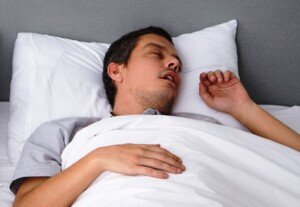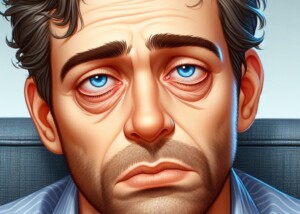There is a specific circumstance under which an oral appliance can actually work better than CPAP for the patient with severe obstructive sleep apnea.
This isn’t about the patient with severe OSA who has no issues with CPAP therapy and has excellent compliance to this mode of treatment.
This is about the patient with severe OSA who has tried CPAP therapy and just cannot adhere to it. Adherence is crucial for optimal treatment.
Severe OSA is defined as having more than 30 apnea-hypopnea events per hour during sleep.
So for instance, if a sleep study shows an AHI (apnea-hypopnea index) of 31, you have severe sleep apnea – even if your daytime symptoms are mild.
If you’re unable to use a CPAP machine (mask too uncomfortable, can’t tolerate air being blown down your throat, can’t tolerate having your mouth affixed to the tube), your next option may be the oral appliance (mandibular advancement device).
How well can an oral appliance treat severe sleep apnea?
“According to guidelines issued by the American Academy of Sleep Medicine and the American Academy of Dental Sleep Medicine in 2015, oral appliances are recommended for ‘adult patients with obstructive sleep apnea who are intolerant of CPAP therapy or prefer alternate therapy,’” says Dr. Roger Roubal, DDS, a sleep apnea dentist with Advanced Dental Sleep Treatment Center.
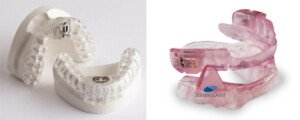
Oral appliance
Dr. Roubal explains, “Guidelines no longer specify oral appliances only work for mild OSA — because it’s been shown in numerous studies that compliance matters.
“If a patient doesn’t comply with CPAP, their sleep apnea is not treated.
“If a patient doesn’t comply with an oral appliance, their sleep apnea is not treated.
“Typically, compliance is much higher on oral appliances than CPAP. Therefore, the treatment outcomes have been deemed equivalent.
“At my office, I encourage patients with severe apnea to at least try a CPAP first, because it provides immediate treatment.
“If a patient finds they cannot tolerate the CPAP or refuses to try one, we go with oral appliance therapy, and most times, that treats their sleep apnea very effectively.”
The answer to “Can an oral appliance effectively treat severe sleep apnea” really needs to take some variables into account.
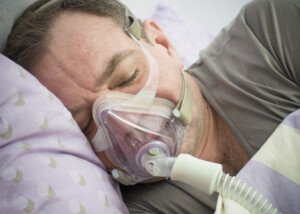
CPAP. Shutterstock/Oleg Golovnev
Now certainly, if a person with severe OSA 100% complies with CPAP therapy (and this assumes the machine works perfectly and is maintained faithfully), their AHI will much more likely be reduced below five per hour, when compared to faithful, diligent use of an oral appliance.
But if someone is 100% committed to CPAP therapy and maintenance, they won’t be thinking of trying an oral appliance.
However, a patient who cannot tolerate CPAP is the one to consider here, because non-compliance with CPAP (inconsistent to sporadic use of the machine) and especially outright refusal to use it, means they’ll still be experiencing a dangerously high level of AH events.
With the mandibular advancement device, such a patient may adhere 100% and thus have a much lower AHI than he or she would with struggling to stick to CPAP therapy.
This is the circumstance under which an oral appliance can be more effective than CPAP therapy for this type of patient.
Will the mandibular advancement device bring the AHI below five in severe OSA or even in the mild range (between five and 15 events/hour)?
Below five is much more challenging to accomplish.
However, the AHI for 97% of Dr. Roubal’s patients gets below 15, regardless of OSA degree.
It may end up in the moderate range. But this patient won’t comply with CPAP, which means the oral appliance outcome will be more effective.
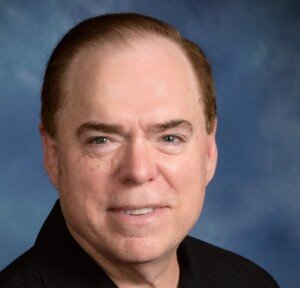 Dr. Roubal has practiced dentistry for 30+ years in Nebraska. Through successful snoring and sleep apnea treatment he saves lives and provides his patients a higher quality of life. Dr. Roubal has received significant additional training and credentials in this area, the sole focus of his practice.
Dr. Roubal has practiced dentistry for 30+ years in Nebraska. Through successful snoring and sleep apnea treatment he saves lives and provides his patients a higher quality of life. Dr. Roubal has received significant additional training and credentials in this area, the sole focus of his practice.
 Lorra Garrick has been covering medical, fitness and cybersecurity topics for many years, having written thousands of articles for print magazines and websites, including as a ghostwriter. She’s also a former ACE-certified personal trainer.
Lorra Garrick has been covering medical, fitness and cybersecurity topics for many years, having written thousands of articles for print magazines and websites, including as a ghostwriter. She’s also a former ACE-certified personal trainer.
.

